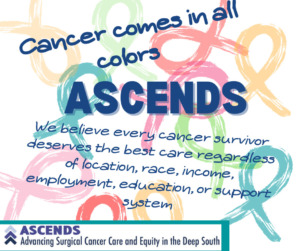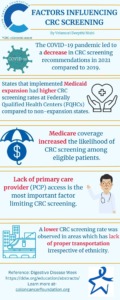On June 17, 2022, the National Comprehensive Cancer Network (NCCN) held a policy summit to discuss cancer care in the workplace and building a 21st century workplace for patients, survivors, and caretakers.
One of the distinct portions of this summit was a panel on Patients, Survivors, and Caregivers in the Workplace: Contemporary Barriers and Solutions to Achieving Inclusive Workplaces. Panel moderator John Sweetenham, MD, FRCP, FACP, FASCO, Chair, NCCN Board of Directors, and Professor of Medicine, Associate Director of Clinical Affairs, UT Southwestern Simmons Comprehensive Cancer Center, noted that the disproportionate distribution of accommodations due to socioeconomic differences leads to inadequate care and suboptimal outcomes for certain populations.
Rebecca V. Nellis, MPP, Executive Director, Cancer and Careers, shared results from a 2021 Cancer and Careers/Harris Poll Survey, which found that for three-fourths of responders, work helped them cope and aided in their recovery. These statistics show us that we can work towards a healthier workplace environment for cancer patients and subsequently influence their health outcomes. Lynn Zonakis, BA, BSN, Principal, Zonakis Consulting, former Managing Director of Health Strategy and Resources for Delta Air Lines, shared the strategies employed by Delta for combating the difficulties associated with a cancer diagnosis. “At all levels, I would say that people were very open to disclosure, and that was the vast norm, because in each work unit, at every level, there were multiple cancer survivors or survivorship in family members, so they understood that it was to their benefit to disclose.”
She did elaborate on the associated risks, citing the example of pilots at risk of losing their jobs when disclosing mental health risks. This can be applied to a cancer diagnosis as well. “At a lot of organizations it can put you at risk. Some people will feel that their job could be vulnerable, and they won’t disclose it, so there’s no one size fits all,” she noted.
Workplace Flexibility for Patients and for Caregivers
Angela Mysliwiec, MD, Senior Medical Director, WellMed, touched on an important aspect of the support process: the caregivers. She spoke about a program at WellMed dedicated to assisting caregivers, who she explained are experiencing the same challenges as the person they’re caring for. “When it comes to work they need flexibility, they need to take care of themselves, they need their mental health cared for, and the organizations themselves who are often ill equipped to manage a person on staff with cancer can often be even more ill equipped to manage the caregiver,” Mysliwiec said.
Randy A. Jones, PhD, RN, FAAN, Professor, Associate Dean for Partner Development and Engagement, and Assistant Director of Community Outreach and Engagement at the University of Virginia, concurred with Mysliwiec. “Caregivers share the anxiety, they share the fatigue, along with some of the patients with cancer that they’re dealing with.” He also made a point about institutions having the resources to empower patients, especially since “people are more aware of these issues, you know people understand that there is an issue between how patients are getting benefits as well as how they may be navigating the system.”
Sweetenham and Nellis closed the panel by highlighting the importance of proactive planning instead of reactive planning. They recommended that organizations should implement workplace flexibility that should be communicated upfront to new employees, and then practice it on a regular basis instead of making adjustments and assumptions as events occur.
Employer Policies Play a Big Role
Joanna Fawzy Morales, Esq., Chief Executive Officer, Triage Cancer, spoke to the audience about The Policy Landscape to Support Patients, Survivors, and Caregivers at Work. Morales pointed out that employment can be a contributor to financial toxicity in the form of lost wages, employee benefits, and more. She further elaborated on a point that Nellis had made about battling assumptions, saying that “Employers have assumptions about their employees who’ve been diagnosed with cancer and their ability to do their jobs. Health care professionals make a whole lot of assumptions about their patients and whether or not they want to work or they can work.”
Explaining the current and suggested employment rights and accommodations, Morales said that they play a big role in helping patients make educated decisions on next actions. While there is a significant lack of awareness of protections available through the law, there are several gaps that need to be bridged. “There are many opportunities to close those gaps to improve the quality of life of patients and their families and mitigate the financial toxicity of a cancer diagnosis,” she added. She concluded her talk by emphasizing the need to educate employers, health care professionals, and the cancer community.
From informing the employer to the employee to equitable care for patients and their caregivers, this policy summit discussed various aspects of cancer in the workplace, and how we can improve the experience for those involved.
Juhi Patel is a Colorectal Cancer Prevention Intern with the Colon Cancer Foundation.
Image credit: Mohamed Hassan, Pixabay












